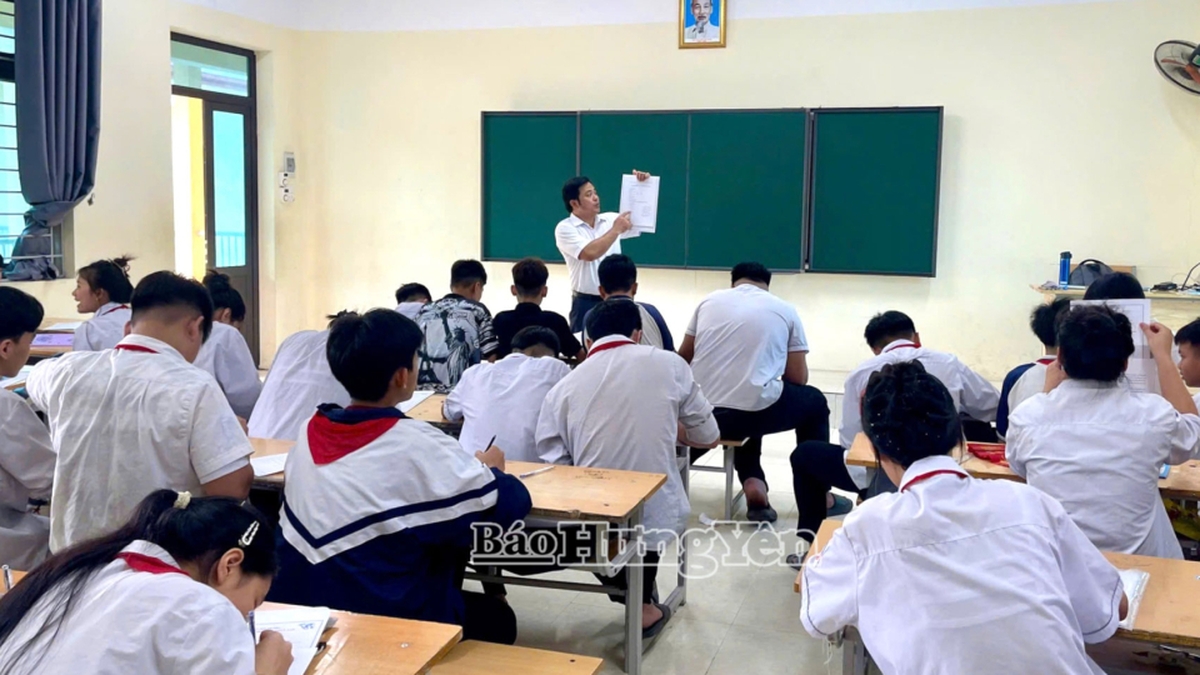In a recent National Assembly session, delegates proposed to review regulations on the management of tutoring and proposed to consider tutoring as a business subject to management conditions. The proposal was made in the context of the increasing trend of illegal tutoring, causing public outrage and putting great pressure on students.
In some ways, this proposal also has positive elements. The positive element lies in the pure heart of the tutor: no hinting, fairness to all students, no forcing extra classes in any form… and the heart of the parents: children take extra classes not for grades, to buy… teachers.
The press has "brought to light" cases of shady tutoring, causing public outrage, but this is only a modest number compared to the cases that are still "in the dark". Even with the 2018 General Education Program with many innovations, students seem to no longer have extra classes or very little extra classes, but extra classes are still flourishing.
In fact, students who do not attend extra classes with teachers who are “not pure in heart” will be at a disadvantage compared to those who do in many aspects: grades, teacher-student relationships. Many families with difficult circumstances also “try” to let their children take extra classes because… they cannot do without them. Not to mention, some teachers use “tricks” to force students to take extra classes.
In short, there is nothing wrong with tutoring and tutoring when both the teacher and the student have a pure heart. That is the crux of the matter.

Students leave a tutoring center in Ho Chi Minh City on the afternoon of November 23.
I used to work at a private school. The school board forbade teachers from giving extra classes because the school organized boarding, semi-boarding, and boarding. This meant that students who studied all day at school had no reason to "burden" themselves with extra time, effort, and money to take extra classes. Without extra classes, students were freed from pressure, had time to rest, relax, and did not add to the financial burden on their families.
The school also strictly prohibits teachers from taking students home to teach at night and on weekends to ensure fairness. Not taking extra classes at teachers' homes means that students are not "fed questions" or know the questions in advance. That is a very important fairness in life, and it needs to come from many factors, of which the educational factor is extremely important. If the school board discovers that a teacher is tutoring students of the school, that teacher will be fired.
Teachers are not allowed to force students to take extra classes.
If we move to not ban extra tutoring and consider extra tutoring a conditional business, the education sector must have specific measures to prevent teachers from finding ways to "force" students to take extra classes.
A parent once told me about her elementary school teacher trying to force her child to take extra classes. At the beginning of the 5th grade, the parent often checked her child's notebooks and saw that the teacher commented that she had completed and performed the exercises well, calculated correctly, had good solutions, and presented them neatly. Based on the teacher's comments, she thought that her child was a good student and did not need extra classes.
A week later, the homeroom teacher kept calling her, saying that out of the 37 students in the class, 35 had come to her house for extra classes. However, the parents were determined not to let their children go to extra classes because they had been attending boarding school all day.
This parent said that the teacher continued to call to pressure her and said: "Your child is still far behind his classmates in class, it's up to you if you don't let him take extra classes. At the end of the year, if he doesn't receive any awards from the school, you have to bear it and don't blame him." Too upset, the parent sent a complaint to the Department of Education and Training.
In another case that I know of, a student had only been in first grade for a week when the teacher complained to the parents that the child was too weak in learning and did not know how to hold a pen. The teacher invited the mother and three other parents to the school to discuss. During the meeting, the mother asked: "Teacher, how weak is my son?"
The teacher replied: "He is weak in everything, even holding a piece of chalk is not strong, I suggest that this afternoon parents contact the tutoring center near the school to register their child for extra classes so that their child can learn well."
Tran Van Tam
Source link





























![[Photo] Signing of cooperation between ministries, branches and localities of Vietnam and Senegal](https://vphoto.vietnam.vn/thumb/1200x675/vietnam/resource/IMAGE/2025/7/24/6147c654b0ae4f2793188e982e272651)






































































Comment (0)